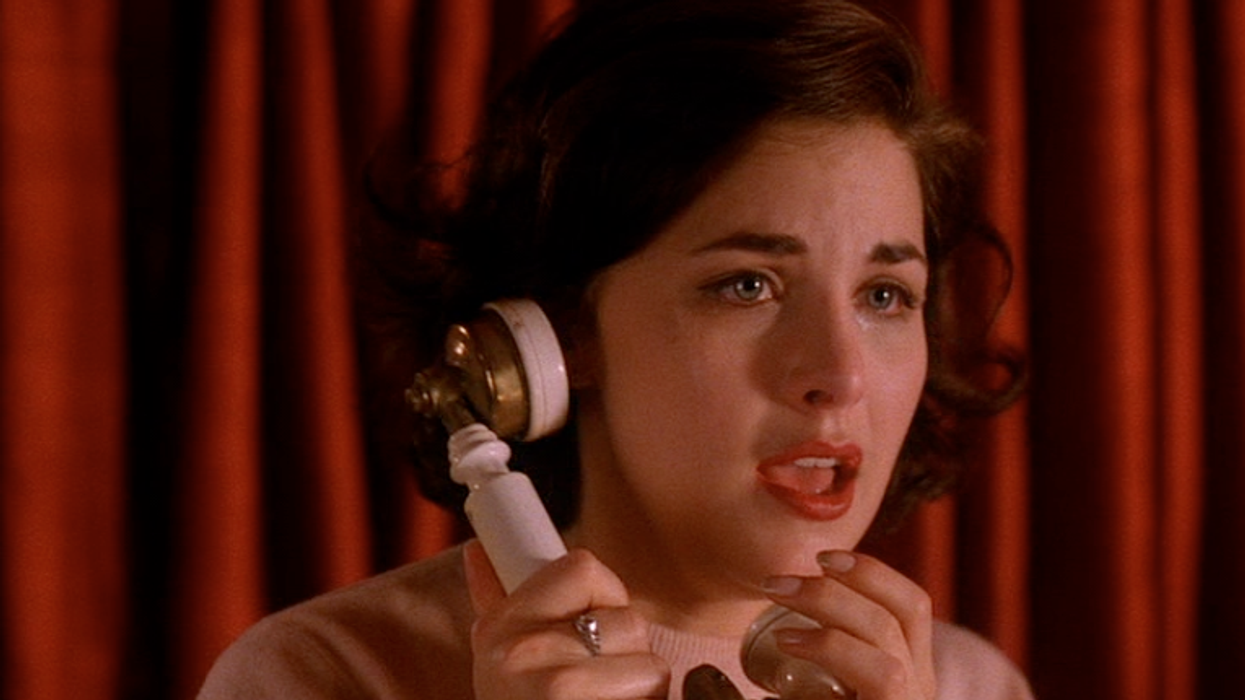Watch: David Lynch's 'Total Life-Changing Phone Call'
Aspiring filmmaker David Lynch was just about to give up—until he got a call from AFI.

Were it not for a single phone call in 1968, David Lynch might have been lost to cinema history.
The 22-year-old aspiring filmmaker was living in economically depressed Philadelphia with his girlfriend and newborn daughter when his father sat him down for the "come to Jesus" talk. Filmmaking was not a viable career path, he told his son. It was time to be responsible.
"The whole thing was, 'Give up film and get a job, because you've got a child, and your film isn't gettin' made, and you're wasting your time,'" Lynch admits in the documentary David Lynch: The Art Life. "And it got me really in a deep, deep way, 'cause they didn't understand. I just couldn't believe what they were saying to me, and they were totally serious."
Lynch almost threw in the towel. Then, the phone rang. It was the American Film Institute. Lynch had been awarded a $5,000 grant to make his first film, The Grandmother.
"It was a total life-changing phone call," Lynch says in the documentary, excerpted in the newly released clip below. "I don't know what would have happened if I hadn't gotten that grant. I really don't."
It's a wonder that the notoriously cagey Lynch allowed documentarians Jon Nguyen and Jason S. to spend two years living alongside him in his Los Angeles home, let alone that he opened up to them. David Lynch: The Art Life affords rare insight into the enigmatic director's personal history, artistic inspiration, fears, and triumphs. We recently spoke to the filmmakers, who shared what it was like to crack open Lynch's mind.
As for what happened with that grant? AFI Director Tony Vellani awarded Lynch additional funds to meet his new budget of $7,119. Upon finishing the film, Vellani invited Lynch to become a fellow at the AFI Center for Advanced Film Studies, where he spent his first year working on a script called Gardenback. Eventually, Lynch tired of the project. He transferred many of its characters into a new film, Eraserhead, which he shot in a custom-built studio below AFI. Lynch worked on the film for four years, during which he took on odd jobs, including a paper route for the Wall Street Journal. At one point, the director was forced to move into Henry's bedroom on the set. Lynch finally completed Eraserhead in 1976.
Featured image from 'Twin Peaks'











